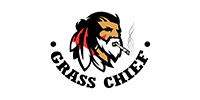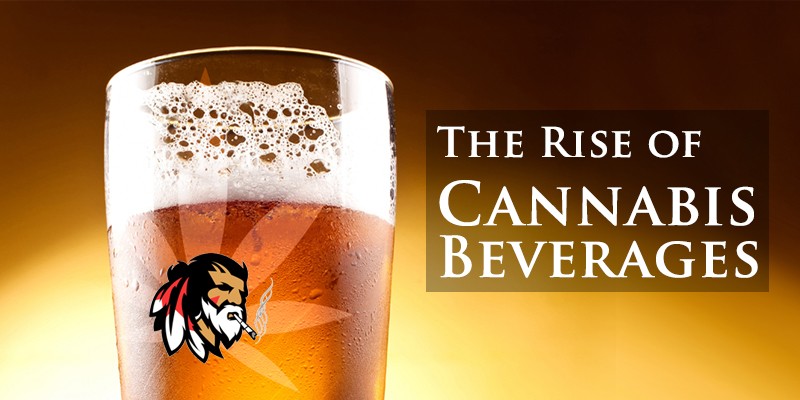Cannabis
Bottoms Up: The Rise of Cannabis Beverages
Over the past decade, beverage producers have lamented a plateau in sales. Consumers know what they like, and when it comes to alcohol, they tend to buy consistently. Those in the industry have been searching for something . . . something new that will grab people’s attention, perhaps even offer something fresh for the consumer, something other than the caffeine boost, the buzz of alcohol . . .
And then legalization came to North America, and almost immediately the industry took off. In 2015, the Cannabis Cup award for Best Edible went to Keef Cola Signature’s Bubba Kush Root Beer—a drink!
The history of cannabis-infused beverages has been short and sweet. Throughout the American states graced by legalization, and now Canada, companies have been scrambling to capitalize on the next big thing, and a buzz-loving public is eagerly awaiting the wide production of cannabis-infused alcohol. But what’s the story with these herbaceous elixirs? Who’s making them? What do they do? Do they live up to the hype? And are they even legal? Read on to find out.
CANNCOCTIONS
The desired cannabinoids (most often THC and/or CBD) are extracted and then infused into a suitable medium. Generally, the cannabinoids in a cannabis-infused drink are absorbed through the liver, just like with a standard pot brownie. The effects are therefore delayed compared to smoking, but they last longer, and may also be more intense.
Because cannabis extracts can be added to a huge number of things, virtually any beverages could theoretically become a cannabis-infused drink. You’ll find cannabis-infused hot chocolate and soda, though most people are interested in alcoholic drinks in particular.
STRANGE BREW
Considering cannabis’ nature as a psychoactive drug, it’s not surprising that the development of mainstream cannabis-infused beverages has occurred with the research dollars of the adult beverage (i.e. alcohol) industry. One of the earliest mainstream incarnations of a cannabis-infused drink comes from Germany in 1996—Cannabia is a crisp hemp beer. That’s right, hemp—the beer may be tasty and refreshing, but don’t expect it to get you high.
In the intervening years, the number of cannabis-infused beverages has skyrocketed. If you look hard enough, you can find an alcoholic drink of nearly any sort that incorporates cannabis. Vodka and gin are the liquors of choice for cannabis infusion, and can be found in select liquor stores across Canada. Cannabis-infused wines are fewer and further between, but are very much a reality as well. Travellers through California may even encounter wine that is truly cannabis-infused, though legalities require it to be labelled as a tincture.
Beer is the new frontier, with a number of products already on the U.S. market, and even more in the works. It’s been big news over the past year that Constellation Brands, the giant behind Corona, invested 4 billion dollars into Canada’s own Canopy Growth Corporation in the hopes of developing a truly cannabis-infused beverage. Molson Coors and Labatt followed suit, partnering with Hexo Corp. and Tilray respectively, to pursue their own products. Whether these products will be a true fusion of cannabis and alcohol is unclear, and in some cases, dubious. In fact, Molson Coors at least has confirmed that they are pursuing a non-alcoholic beverage.
WHY AM I NOT HIGH?
The truth is that the overwhelming majority of cannabis-infused alcoholic beverages are made with hemp, which contains less than 0.5% THC. There are a number of reasons for this, and the simplest one is marketing: cannabis is hot at the moment, and hot things sell. Hemp, furthermore, with its lack of psychoactive THC is easy, and legal. A number of craft breweries have done quite well by simply slapping a cannabis leaf on their label and selling beer with the notes of hemp, but none of the medicinal effects you might expect from something supposedly infused with cannabis.
The second weightier reason is that alcoholic drinks infused with cannabinoids are legally dubious. In the United States, where the majority of this cannabis-alcohol fusion has occurred, only a minority of states have legalized recreational cannabis, meaning that nationwide distribution would be nightmare, with producers unable to move their products across certain state lines.
Some producers are also unwilling to enter the field due to concerns over liability. The American Association of Clinical Chemistry (AACC) released a study in which they found that THC blood concentrations increased significantly with alcohol consumptions, suggesting that alcohol and cannabinoids may interact in ways which exacerbate their respective effects. This latter concern is particularly troublesome, as it would complicate roadside DUI tests.
Basically, the industry is unsure as to whether we want to combine the two in the first place. Many consumers (the author included) can say from experience that combining alcohol and cannabis can be a very pleasant experience. However, not everyone is so well-versed in mixing their vices. The effects of alcohol and cannabis are very different, and indeed the effects of the alcohol may have worn off entirely before the cannabis even kicks in for some people. Inexperienced consumers may find themselves waking up hungover and incredibly stoned!
OH YEAH, AND COCA COLA
Perhaps the craziest news of all was that Coca Cola had signed a deal with Aurora Cannabis. While it turned out that that was not entirely true, the soft drink king and one of the most successful companies in history did confirm that they are keeping a keen eye on the cannabis industry, and the development of new cannabis products. Specifically, they noted that they are shopping around for a company to supply them with CBD for use in wellness drinks.
If Coke’s getting in on the action, well, this is probably going to be big. For now, rest assured that there are great minds (and great wallets) involved in the development of cannabis-infused alcohol, or, falling short of that, cannabis-infused beverages of other kinds. While we wait, we might as well do it with a hemp-infused ale in hand. Or hey, there are plenty of recipes available online for intrepid chemists interested in infusing their own canncoctions—but, as always, if you choose to try it home: be safe, go slow, and don’t trust everything you read online!


